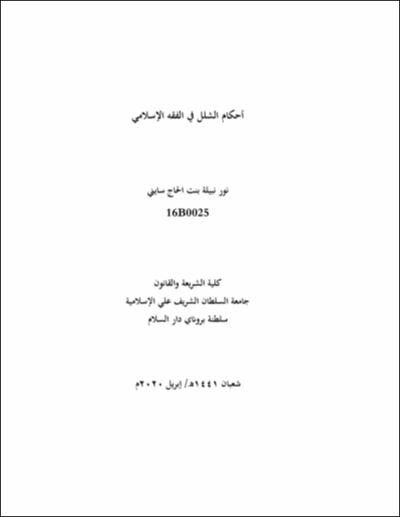أحكام الشلل في الفقه الاسلامي

Date
2020Author
Nuurnabilah binti Haji Saini
Abstract
Syariah Islamiyyah was established based on ways to facilitate and protect the public interest of the people by governing specific rulings or hukm to fulfill their needs at times of difficulties. This academic study was conducted particularly to know further the rulings or hukm of paralytic in performing worship or ibadat, its implementation and concession introduced in Syariah in order to facilitate the people in respect of public interest. The method used in this academic study includes is through inductive or reading method and refers from the original sources of each four scholar of Fiqh and some from scholar Fiqh Usul references to achieve the purpose and summarize the subject in opinion of scholars in ruling or Hukm of paralytic. This academic study also contained the differences opinion of four scholars with the evidences in every problem that related to Taharah, shaum, solat and hajj for paralytic. In every problem also presented the opinions of scholar with the evidence in every group and the writer would explain the right opinion. And the results of this academic study is most of the Imam of scholars have the difference of opinion on ruling or hukm of paraliytic in performing ibadat. In conclusion, with this discussion, it can provide a deeper and more affective understanding also provide useful guideline for paralytic or family member in performing ibadat.
Collections
Alternative Title
The Law of Disabled People in Islamic Fiqh

